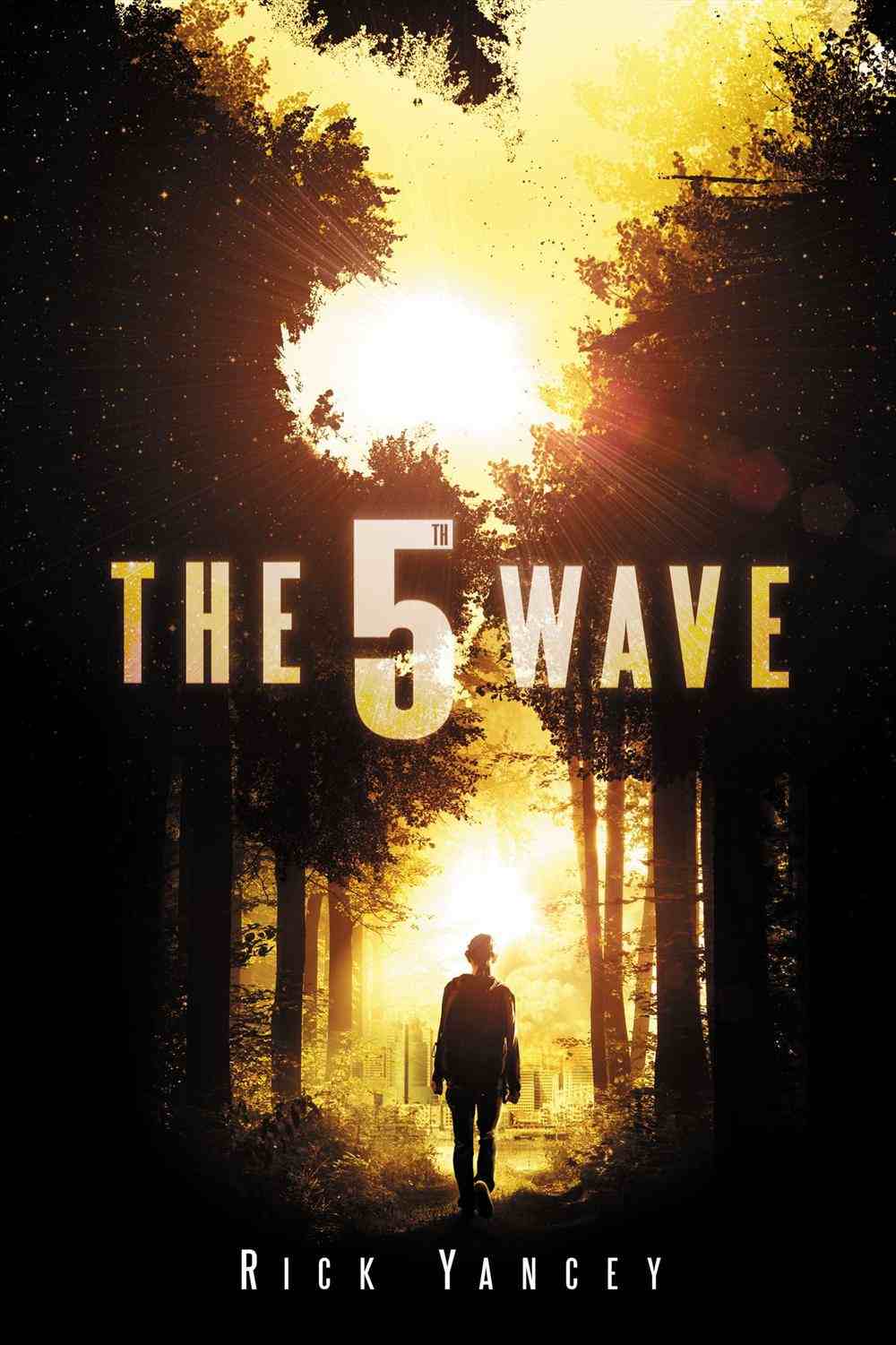The 5th Wave by Rick Yancey is a gripping narrative that unfurls like a trembling flag in a storm, raising questions about humanity’s resilience in the face of cataclysmic adversity. As a young adult dystopian story, it offers an exhilarating blend of science fiction and psychological introspection, drawing readers into a world irrevocably altered by extraterrestrial threats. This novel is not merely a tale of survival; it is a poignant exploration of love, loss, and the complexities of trust during tumultuous times.
Imagine a world where the sky weeps with the lament of fallen angels, and the very air is tinged with the acrid scent of fear. The opening sequences of The 5th Wave thrusts us into the chaos of an alien invasion, where silence—the once comforting companion of solitude—transforms into an ominous herald of despair. With each wave of attack, the invaders employ a strategy as cunning and malevolent as a spider weaving its web, ensnaring humanity in fear and uncertainty.
The narrative is structured around a series of waves, each representing a different phase of the invasion. Yancey uses this metaphorical framework masterfully, imbuing the term “wave” with layers of meaning. Waves are not just a force of nature; they are relentless, unstoppable, and reshape the landscape of the world as we know it. The First Wave extinguishes lights—the electrical grid left in ruins, cutting off civilization’s lifeline to one another. The Second Wave unleashes a brutal plague, preying on the vulnerable with chilling precision. The Third Wave pits humans against each other, inciting paranoia in a world already frayed by trust. Ultimately, the Fourth Wave seeks to eradicate the last vestiges of humanity’s spirit, challenging the very essence of what it means to be human.
Against this backdrop of despair, Yancey introduces us to Cassie Sullivan, a fierce protagonist who embodies resilience and vulnerability in equal measure. Her journey of survival is interspersed with heart-wrenching recollections of her family and the life she once knew. Cassie’s narrative voice is sharp and unyielding, evoking a sense of immediacy. She is not just a soldier in this war; she is a witness to its toll, a reflection of the many who have suffered under the weight of loss. Her dedication to finding her younger brother, Sammy, becomes the axis upon which her character revolves, illuminating the innate human instinct to protect those we cherish in the face of insurmountable odds.
One of the novel’s most engaging aspects lies in its multifaceted characters. The ensemble cast is filled with richly developed personalities, ranging from the calculating and enigmatic Evan Walker to the conflicted yet heroic Ben Parish. Each character emerges from the chaos of their own history, fragmented yet compelling. Yancey crafts these individuals with precision, allowing readers to explore their motivations and vulnerabilities. Through their interactions, the narrative forces us to grapple with profound philosophical questions: What does it truly mean to be human? In the throes of survival, can we maintain our humanity, our compassion, amidst destruction?
As the plot thickens, the suspense escalates, twisting paths and probing existential dilemmas. Yancey deftly weaves themes of manipulation and betrayal throughout the story, compelling readers to reconsider the nature of alienation and fellowship. The 5th Wave boldly asserts that humanity’s greatest enemy may not be the otherworldly invaders but rather the insidious influences of fear and doubt that can unravel the fabric of society. This makes the narrative not just a fight for survival but an exploration of moral ambiguity. The lines blur, and allegiances shift as characters are driven by stakes that resonate with a deeply ingrained instinct for self-preservation.
Moreover, the pacing complements the narrative’s urgency, propelling readers through the pages with an electric charge. The interspersed action sequences are punctuated by moments of introspection, creating a rhythm that mirrors the duality of life and death. Just as the waves crash and recede, the tension ebbs and flows, compelling readers to stay ever-engaged, anticipating the next turn in this treacherous landscape.
From a thematic standpoint, Yancey invites us to ponder the impact of empathy amid chaos. In a world where survival often necessitates unthinkable choices, the novel posits that love and connection serve as buffers against despair. The bonds that form—fragile yet tenacious—become a source of strength, illuminating the path forward. These relationships act as a lifeline, reminding readers that even in the darkest moments, glimmers of hope can shine through the shadows.
In conclusion, The 5th Wave serves as a profound reflection on the fragility of humanity, expertly crafted through invigorating prose and a kaleidoscopic view of the human experience. Yancey’s imaginative exploration of survival transcends the confines of genre, prompting readers to confront their own understandings of fear, inclusion, and the indefatigable spirit of hope. As waves of adversity crash against the shores of human resilience, The 5th Wave illustrates that while the world may change in unimaginable ways, the core of our humanity remains steadfast, ever-persistent against the tide. It is a narrative that resonates long after the final page is turned, inviting reflection and evoking an appreciation for the strength found in unity.
